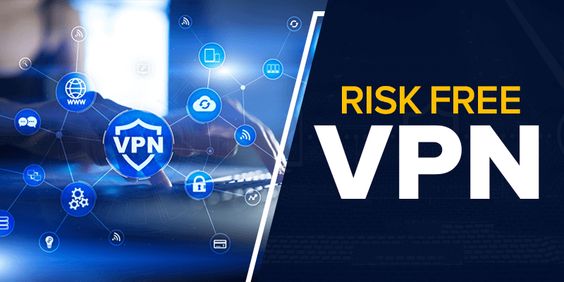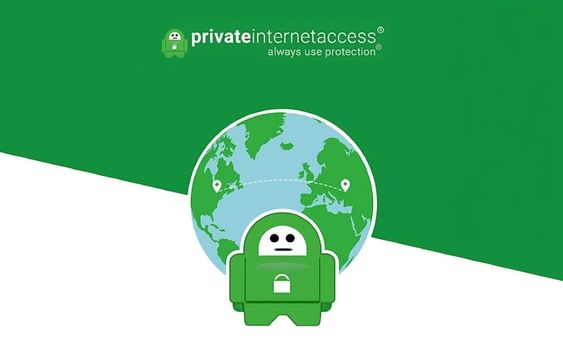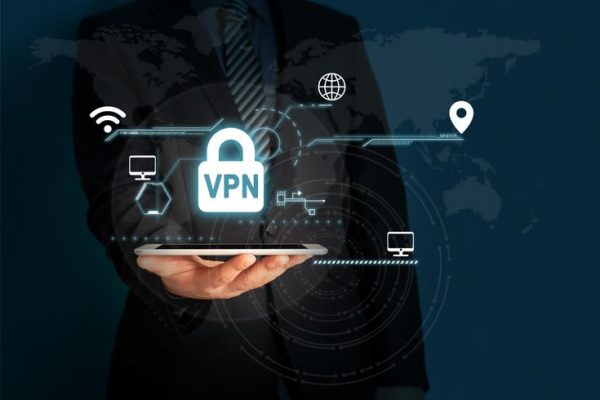The Risks of Free VPNs: Why You Should Always Opt for Paid Services
In an era dominated by digital connectivity, Virtual Private Networks (VPNs) have emerged as essential tools for ensuring online privacy and security. However, amidst the multitude of options available, this article seeks to delve into the critical differences between free and paid VPN services. By examining the inherent risks associated with free VPNs, it aims to underscore the necessity of opting for paid alternatives to safeguard personal data and digital activities effectively.

Introduction
The prevalence of VPNs in the digital age:
With the ever-expanding digital landscape and increasing concerns over online privacy and security, Virtual Private Networks (VPNs) have seen a surge in popularity. From individuals seeking to protect their personal data to businesses safeguarding sensitive information, VPNs have become indispensable tools in the modern era.
Classification of VPNs: Free vs Paid
VPNs can broadly be categorized into two main types: free and paid services. While both aim to provide users with a secure and private browsing experience, there are significant differences between the two in terms of reliability, security features, and overall effectiveness. Understanding these distinctions is crucial for making informed decisions about which VPN service to choose.
C. Statement on the importance of choosing quality VPN services
The selection of a VPN service is not merely a matter of convenience but a critical decision that directly impacts one's online security and privacy. Opting for a quality VPN service ensures robust encryption protocols, reliable server connections, and responsive customer support—all essential elements in safeguarding sensitive data and maintaining anonymity online. Therefore, it is imperative to prioritize quality over cost when selecting a VPN provider, as the potential risks associated with subpar services can far outweigh any perceived benefits.
Advantages of Paid VPNs

Higher security standards
Paid VPN services typically offer advanced security features such as strong encryption protocols, secure tunneling protocols like OpenVPN or IKEv2, and robust privacy policies. These measures ensure that user data remains protected from potential threats, including hackers, cybercriminals, and surveillance activities. Compared to free VPNs, which may lack stringent security measures, paid services prioritize the implementation of comprehensive security standards to safeguard user privacy effectively.
Better speed and performance
Paid VPNs often operate extensive server networks strategically located around the world. This infrastructure allows for faster connection speeds and smoother performance, enabling users to browse the internet, stream content, and download files with minimal latency or buffering. Additionally, paid VPNs typically allocate dedicated bandwidth to users, ensuring consistent performance even during peak usage periods. This contrasts with free VPNs, which may impose bandwidth limitations or overcrowded servers, resulting in slower speeds and unreliable connections.
Professional customer service and technical support
Another significant advantage of paid VPN services is the availability of professional customer service and technical support. Paid VPN providers prioritize customer satisfaction and invest in knowledgeable support teams capable of addressing user inquiries, troubleshooting technical issues, and providing timely assistance. This ensures that users receive prompt and effective support whenever they encounter difficulties or require guidance. In contrast, free VPNs may offer limited or nonexistent customer support, leaving users stranded in the event of connectivity problems or other issues.
Diverse and unrestricted access
Paid VPN services often offer a broader range of server locations and IP addresses, granting users access to geographically restricted content and bypassing censorship or content blocks. This diversity allows users to connect to servers in various countries, enabling them to access region-specific websites, streaming platforms, and online services with ease. Additionally, paid VPNs typically implement features such as split tunneling and obfuscation techniques, further enhancing users' ability to bypass internet restrictions and maintain unrestricted access to the web. In contrast, free VPNs may offer limited server options and impose restrictions on access, limiting users' online freedom and browsing capabilities.
Disadvantages of Free VPNs

Data security risks
Free VPN services often lack robust security measures, leaving users vulnerable to data breaches, hacking attempts, and other cyber threats. Some free VPNs may compromise user privacy by logging and selling personal data to third parties, undermining the very purpose of using a VPN for anonymity and protection. Additionally, the use of weak encryption protocols and unreliable server connections further exposes users to potential security vulnerabilities, putting their sensitive information at risk of interception or exploitation.
Speed and bandwidth limitations
Free VPNs frequently impose speed and bandwidth limitations on users, resulting in slower connection speeds and reduced browsing performance. Overcrowded servers and limited resources can lead to congestion and network congestion, causing delays, buffering, and interruptions during online activities such as streaming, gaming, or downloading large files. These speed and bandwidth restrictions diminish the overall user experience, making free VPNs less suitable for bandwidth-intensive tasks or activities requiring consistent, high-speed internet connectivity.
Advertisements and user data collection
To generate revenue, many free VPN providers rely on advertising and user data collection practices, compromising user privacy and security. Advertisements integrated into the VPN client or web browser can be intrusive and disruptive, detracting from the user experience and potentially exposing users to malicious content or phishing attacks. Furthermore, some free VPNs engage in data mining and tracking activities, harvesting user data such as browsing history, IP addresses, and device identifiers for targeted advertising or resale to third-party advertisers, undermining user privacy and trust.
Potential for blocking or usage restrictions
Free VPN services often impose limitations on usage, including restrictions on server locations, simultaneous connections, or data transfer quotas. These limitations can significantly impact users' ability to access content, bypass geo-restrictions, or maintain consistent connectivity across devices. Moreover, some free VPNs may be subject to censorship or government surveillance in certain jurisdictions, leading to potential blocking or shutdown of the service altogether. These restrictions diminish the utility and reliability of free VPNs, making them less suitable for users seeking unrestricted access to the internet and protection against censorship or surveillance.
Real-world cases of Free VPN risks
Instances of data collection and selling by popular free VPNs
Many popular free VPN services have been implicated in data collection and selling scandals, betraying user trust and compromising their privacy. For instance, in 2017, the popular free VPN service "Hola VPN" was found to be selling user bandwidth to botnet operators, effectively turning users into exit nodes for malicious activities. Similarly, in 2018, the free VPN app "SuperVPN" was discovered to be logging users' internet activities and selling the data to advertisers, exposing sensitive information to third parties without user consent. These incidents highlight the inherent risks of trusting free VPN services with personal data and underscore the importance of exercising caution when selecting a VPN provider.
Cases of privacy and cybersecurity breaches
Free VPNs have also been associated with privacy and cybersecurity breaches, compromising user security and exposing them to potential threats. In 2019, researchers uncovered serious vulnerabilities in various free VPN apps available on the Google Play Store, including weak encryption, DNS leaks, and insecure permissions handling. These vulnerabilities could potentially allow attackers to intercept and manipulate users' internet traffic, steal sensitive information, or execute remote code execution attacks on their devices. Additionally, in 2020, the free VPN service "Windscribe" suffered a data breach that exposed the personal information of over 2 million users, including email addresses and hashed passwords. These incidents serve as stark reminders of the risks inherent in using free VPN services and highlight the importance of prioritizing security and privacy when choosing a VPN provider.
Summary and Recommendations
Importance of investing in paid VPN services
Given the numerous risks associated with free VPN services, investing in a paid VPN subscription is essential for ensuring robust security and privacy protections. Paid VPNs offer higher security standards, better performance, professional customer support, and diverse access options, making them a more reliable and trustworthy choice for safeguarding sensitive data and online activities. While free VPNs may seem appealing due to their cost-free nature, the potential drawbacks and security vulnerabilities far outweigh any perceived benefits.
Choosing the right VPN service based on individual needs and budget
When selecting a VPN service, it is crucial to consider individual needs, preferences, and budgetary constraints. Users should evaluate factors such as security features, server locations, connection speeds, device compatibility, and pricing plans to determine which VPN provider best aligns with their requirements. Additionally, users should research and compare different VPN services, read user reviews and expert recommendations, and take advantage of free trials or money-back guarantees to assess performance and reliability before making a commitment.
Emphasizing the benefits of security and personal privacy
Beyond the convenience of accessing geo-restricted content or bypassing censorship, the primary goal of using a VPN is to safeguard security and personal privacy. By encrypting internet traffic, masking IP addresses, and preventing third-party tracking, VPNs provide users with enhanced security and anonymity online, protecting against cyber threats, surveillance, and data breaches. Therefore, it is essential to prioritize security and personal privacy when choosing a VPN service and to remain vigilant against potential risks and vulnerabilities. Ultimately, investing in a reputable paid VPN service is a small price to pay for the invaluable protection it provides in today's increasingly interconnected and data-driven world.
Conclusion
Throughout this discussion, we have highlighted the significant differences between free and paid VPN services, focusing on their respective advantages and disadvantages. We've underscored the importance of prioritizing security, privacy, and reliability when selecting a VPN provider, emphasizing the risks associated with free VPNs, including data security vulnerabilities, speed and bandwidth limitations, privacy breaches, and potential usage restrictions. In contrast, paid VPN services offer superior security standards, better performance, professional support, and unrestricted access, making them the preferred choice for users seeking comprehensive protection and peace of mind online.
While users may be drawn to free VPN services for their cost-saving benefits, it is essential to recognize the potential risks and limitations associated with these offerings. We respect the autonomy of users to choose the VPN service that best suits their needs and preferences. However, we strongly advocate for informed decision-making, encouraging users to prioritize security, privacy, and reliability over convenience or affordability. By investing in a reputable paid VPN service, users can mitigate the risks of data breaches, cyber threats, and privacy infringements, ensuring a safer and more secure online experience in today's digital age.





